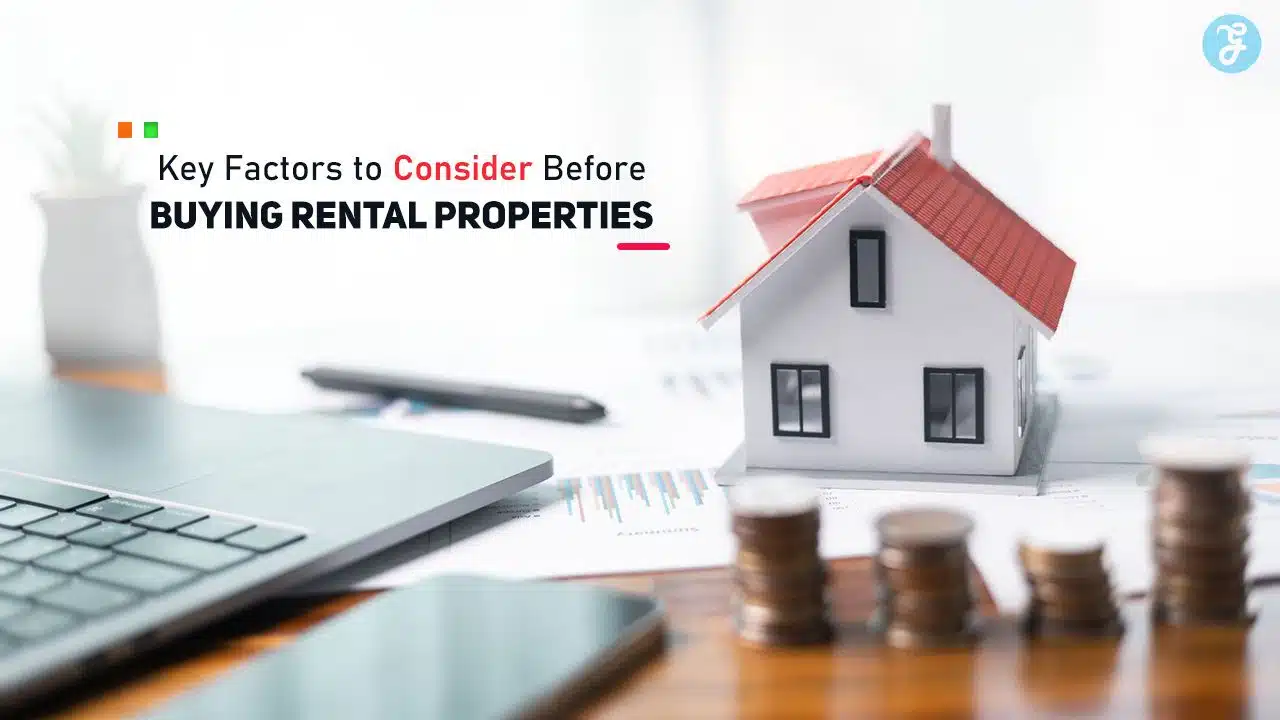Investing in rental properties is a popular way to build wealth and generate passive income. However, it’s not as simple as buying a property and collecting rent.
Successful rental property investment requires careful planning, thorough research, and strategic decision-making.
Understanding the essential factors before buying a rental property can save you from costly mistakes and help you maximize your return on investment (ROI).
Whether you’re a first-time investor or looking to expand your real estate portfolio, this detailed guide will walk you through the 15 key factors to consider before buying rental properties.
1. Location
The location of a rental property is perhaps the most critical factor influencing its profitability. A property in a desirable area attracts tenants, ensures steady rental income, and appreciates in value over time.
What to Consider:
- Proximity to Amenities: Look for areas near schools, shopping centers, hospitals, and public transport.
- Neighborhood Safety: Check crime rates and the overall security of the area.
- Employment Opportunities: Properties near business hubs or industrial zones often have higher tenant demand.
- Future Development Plans: Investigate upcoming infrastructure projects, which can increase property value.
Pro Tip: Spend time visiting neighborhoods at different times of the day to assess noise levels and traffic patterns.
2. Budget and Financing
Understanding your financial limits and exploring financing options is crucial before purchasing a rental property. Overextending your budget can lead to financial strain.
What to Consider:
- Down Payment Requirements: Rental properties often require larger down payments than primary residences (typically 20-25%).
- Loan Options: Compare mortgage rates and terms to find the best financing option.
- Emergency Funds: Set aside money for unexpected repairs or vacancies.
- Operating Costs: Account for property taxes, insurance, maintenance, and management fees.
Pro Tip: Use a mortgage calculator to estimate monthly payments and ensure the property fits your budget.
3. Rental Market Demand
A property with high tenant demand ensures steady occupancy and rental income. Researching the local rental market helps you determine if the area is suitable for investment.
What to Consider:
- Vacancy Rates: High vacancy rates may indicate low demand or oversupply in the area.
- Target Demographic: Understand who your potential tenants are (families, students, professionals) and their needs.
- Competitive Rental Rates: Research similar properties to gauge what tenants are willing to pay.
Pro Tip: Use online rental platforms to analyze local listings and trends.
4. Property Type
Different property types, such as single-family homes, multifamily units, or condos, come with varying benefits and challenges.
What to Consider:
- Single-Family Homes: Easier to manage but may have lower returns.
- Multifamily Units: Higher income potential but more complex management.
- Condos: Often involve HOA fees and regulations but offer low maintenance.
Pro Tip: Start with a single-family home if you’re a beginner and gradually expand to multifamily properties.
5. Condition of the Property
The condition of a rental property directly affects your upfront costs and ongoing maintenance expenses.
What to Consider:
- Inspection Reports: Hire a professional inspector to identify structural or mechanical issues.
- Age of the Property: Older properties may require more repairs and updates.
- Renovation Potential: Properties needing cosmetic improvements can be more affordable but require additional investment.
Pro Tip: Factor renovation costs into your budget and estimate how long they will delay rental income.
6. ROI and Cash Flow
A profitable rental property should generate positive cash flow and a strong return on investment.
What to Consider:
- Gross Rent Multiplier (GRM): Divide the property price by the annual rental income to evaluate profitability.
- Net Operating Income (NOI): Calculate total income minus operating expenses.
- Cash-on-Cash Return: Compare annual cash flow to your initial investment.
Pro Tip: Aim for a cash flow that covers expenses and provides a reasonable profit margin.
7. Tenant Screening Laws
As a landlord, you must comply with tenant screening laws to avoid discrimination claims or legal issues.
What to Consider:
- Fair Housing Laws: Familiarize yourself with federal and state regulations.
- Background Checks: Ensure you can legally request credit, criminal, and rental history checks.
- Lease Agreements: Draft contracts that comply with local landlord-tenant laws.
Pro Tip: Work with a property attorney to ensure your practices align with legal standards.
8. Property Management
Managing a rental property involves significant time and effort. Determine whether you’ll handle it yourself or hire a professional.
What to Consider:
- Self-Management: Ideal for nearby properties and hands-on landlords.
- Professional Management: Worth the cost for investors with multiple properties or limited time.
- Management Costs: Typically 8-12% of monthly rental income.
Pro Tip: Interview property management companies to find a reliable partner.
9. Insurance Coverage
Comprehensive insurance protects your rental property from unforeseen events, such as natural disasters, accidents, or lawsuits.
What to Consider:
- Landlord Insurance: Covers property damage, liability, and loss of rental income.
- Flood or Earthquake Insurance: Necessary for properties in high-risk areas.
- Tenant Insurance Requirements: Encourage tenants to obtain renters’ insurance.
Pro Tip: Compare multiple insurance providers to find the best coverage and rates.
10. Zoning Laws and Regulations
Understanding local zoning laws is essential to ensure the property can legally be rented.
What to Consider:
- Rental Restrictions: Some areas have limits on short-term or long-term rentals.
- Permits and Licenses: Check if a rental license is required.
- Zoning Compliance: Ensure the property is zoned for residential rental use.
Pro Tip: Consult with local authorities or a real estate attorney for guidance on zoning laws.
11. Tax Implications
Rental property ownership comes with various tax implications, which can impact your overall returns.
What to Consider:
- Property Taxes: Assess local tax rates and their impact on profitability.
- Deductions: Claim expenses like mortgage interest, repairs, and depreciation.
- Tax Professionals: Work with an accountant to optimize your tax strategy.
Pro Tip: Sta y informed about changes in tax laws affecting rental properties.
12. Neighborhood Trends
Choosing a neighborhood with growth potential can lead to higher property values and rental demand.
What to Consider:
- Economic Growth: Look for areas with increasing employment opportunities.
- Demographic Shifts: Research population growth and age demographics.
- Real Estate Trends: Monitor rising property values and demand for rentals.
Pro Tip: Use real estate market reports to identify emerging neighborhoods.
13. Utilities and Infrastructure
The availability of essential utilities and infrastructure is a critical factor that impacts tenant satisfaction and rental appeal. Properties located in areas with reliable utilities and modern infrastructure tend to attract long-term tenants.
What to Consider:
- Utility Access: Ensure the property has access to water, electricity, and internet services.
- Public Transport: Proximity to bus stops, train stations, or major roads can increase tenant demand.
- Local Amenities: Look for nearby schools, parks, shopping centers, and healthcare facilities.
Pro Tip: Highlight the convenience of utilities and amenities in your rental listing to attract tenants.
14. Environmental and Natural Risks
Understanding environmental risks is crucial before investing in rental properties. Factors like flooding, earthquakes, or pollution can affect property value, tenant safety, and insurance costs.
What to Consider:
- Flood Zones: Check if the property is located in a flood-prone area and requires flood insurance.
- Soil Stability: Research potential risks like erosion or subsidence.
- Air and Noise Pollution: Evaluate the impact of nearby factories, highways, or airports.
Pro Tip: Request an environmental report during the property inspection to uncover potential risks.
15. Market Competition
A competitive rental market can impact your ability to attract tenants and set profitable rental rates. Understanding the local competition helps you position your property effectively.
What to Consider:
- Rental Saturation: Analyze how many rental properties are available in the area.
- Unique Selling Points: Identify features that make your property stand out, such as modern appliances, a garden, or extra storage.
- Marketing Strategies: Use professional photos, detailed descriptions, and online platforms to advertise your property.
Pro Tip: Keep rental rates competitive while emphasizing your property’s unique advantages to attract tenants quickly.
Takeways
Investing in rental properties can be a rewarding venture, but success requires careful consideration of multiple factors. By evaluating key aspects like location, tenant demand, property condition, and financial metrics, you can make informed decisions that maximize your returns and minimize risks.
These 15 key factors to consider before buying rental properties provide a comprehensive framework for new and experienced investors alike.
Take the time to research, plan, and consult with professionals to ensure your investment aligns with your financial goals. With the right approach, rental properties can become a reliable source of income and long-term wealth.
Start your journey with confidence, and enjoy the rewards of smart real estate investing.







































